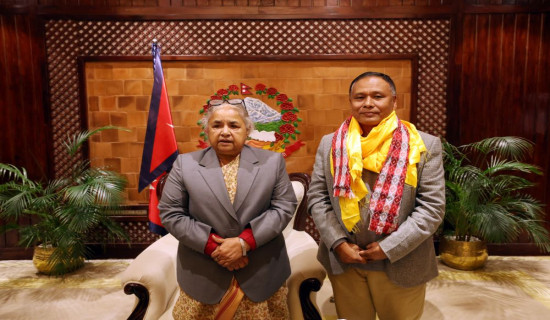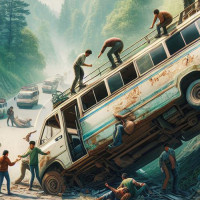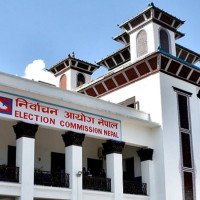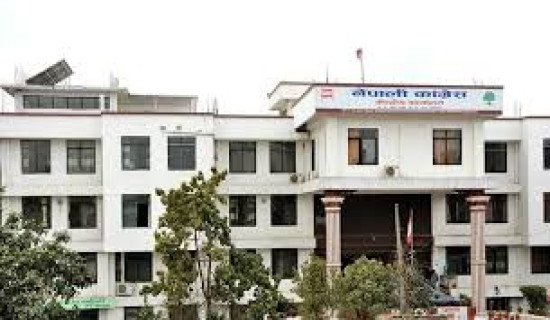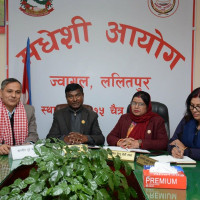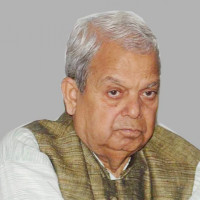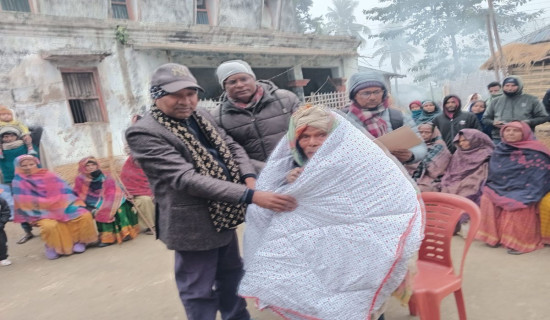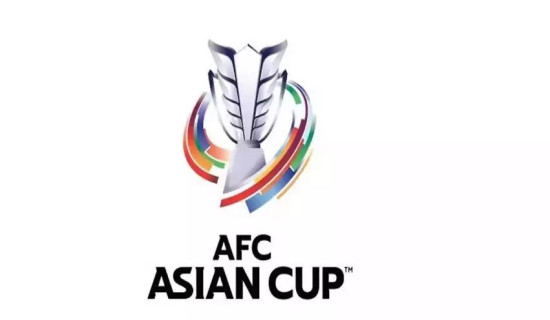- Thursday, 8 January 2026
Digital Nepal Framework service not satisfactory
Kathmandu, Jan. 3: The government took a major step towards digitalisation of its services by introducing “Digital Nepal Framework” in 2019.
According to the framework, the scheme was designed to enable Nepal to harness its growth potential by leveraging disruptive technologies and driving socioeconomic growth. The programme was expected to deliver benefit of up to Rs. 800 billion by 2022.
However, while Nepal has been moving forward to make the government services paperless and digitalise every sector in the country to ensure quality development, the steps could not be effective as expected.
In May 2018, the then Prime Minister KP Sharma Oli had stated that he would sack any minister lacking knowledge to operate a laptop. In July 2018, Oli chaired the first digital meeting of the Cabinet by providing laptops to all the ministers. However, this initiative also could not succeed.
Another cornerstone for Digital Nepal was the introduction of “Nagarik App”, which was made public on January 15, 2021, with an aim to provide "support of communication and information technology, government services hand in hand" to the citizens.
The first three-month e-bulletin of the Ministry of Communication and Information Technology (MoCIT) in the fiscal year 2022/23 shows that the application was downloaded by more than 2 million individuals but was utilised by only 75,302,
The application provides 49 different services of 28 government agencies, such as linking citizenship, permanent account number (PAN), driving license, vehicle documents, and academic certificates, among others.
According to the details of Nagarik App on its website, the online services of various government and public bodies can be easily accessed through this app, and this app will also act as a service delivery gateway so that the electronic systems of the government and public bodies do not have to be interconnected separately to establish contact.
“The Nagarik App is linked with a SIM card used in the mobile phone. A Nepali citizen can use the application when the SIM is registered under their own name. A new account in the application is further verified through the individual’s citizenship,” said Anil Kumar Dutta, joint-secretary at the MoCIT.
According to Dutta, it is difficult for an individual to link his/her government documents in the Nagarik App unless they use a SIM card registered in their own name. “An individual cannot create an account and link the documents failing that,” he added.
However, despite the government making sure that the documents in the application are genuine, they are not accepted by the government bodies themselves.
“I had a work in a government office and I had gone to Singha Durbar. I was asked for my citizenship certificate to prove my identity before entering its premises. I showed them my citizenship linked in the Nagarik App but they didn’t accept it,” said one Shrestha, who demanded anonymity of his first name.
Shrestha, who is also working as a developer of the Nagarik App, informed that he was shocked to see different government bodies declining something created by the government itself.
“Yes, many government bodies deny accepting documents shown through the Nagarik App. We should bring a directive which ensures that the documents in the application should be accepted as genuine. Unless that happens, we cannot emerge as a paperless government,” said Dutta.
Similarly, the vehicle tax can be paid online through the Nagarik App. An individual receives a print letter, with a QR code, from the respective province’s Transportation Ministry confirming the payment of the tax.
The online payment has been allowed to relieve citizens from the hassles of visiting transport offices and spending the whole day running from one window to another to complete the process.
When this reporter visited the Department of Transport Management in March 2022, the officials said that a vehicle tax could be paid digitally and a receipt with a QR code could be obtained. “It can be scanned by traffic police to check its legitimacy,” said the senior officials including then Director General Namraj Ghimire.
However, when this reporter showed his motorcycle’s online receipt of vehicle tax, traffic officers denied accepting it as a valid document during a security check along Koteshwor-Suryabinayak road section few months ago.
“We don’t have enough resources to check vehicle-related documents online. We have requested concerned authorities to help us gain access to documents online but nothing has been done yet,” said a senior traffic police officer at the Kathmandu Valley Traffic Police Office.
“Similarly, with the transport-related issues being overlooked by respective provincial governments, the coordination has further deteriorated. We could perform our duty more effectively if transport-related documents were completely digitalized,” said the officer.
Talking to The Rising Nepal, Sebantak Pokharel, spokesperson for MoCIT, said that the government was moving forward with different plans and policies so that all the departments could evolve paperless.



